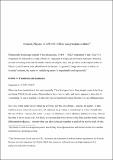Files in this item
Responding to the Platonists : Physics I 9
Item metadata
| dc.contributor.author | Broadie, Sarah Jean | |
| dc.contributor.editor | Ierodiakonou, Katerina | |
| dc.contributor.editor | Kalligas, Paul | |
| dc.contributor.editor | Karasmanis, Vassilis | |
| dc.date.accessioned | 2021-06-05T23:47:53Z | |
| dc.date.available | 2021-06-05T23:47:53Z | |
| dc.date.issued | 2019-06-06 | |
| dc.identifier | 248879017 | |
| dc.identifier | 0e6e246a-0c5a-415c-a0e1-a1b7de38e50b | |
| dc.identifier.citation | Broadie , S J 2019 , Responding to the Platonists : Physics I 9 . in K Ierodiakonou , P Kalligas & V Karasmanis (eds) , Aristotle's Physics alpha : Symposium Aristotelicum . Symposia Aristotelia , Oxford University Press , Oxford , pp. 302-340 , Proceedings of the XIVth Symposium Aristotelicum , Delphi , Greece , 26/07/14 . https://doi.org/10.1093/oso/9780198830993.003.0011 | en |
| dc.identifier.citation | conference | en |
| dc.identifier.isbn | 9780198830993 | |
| dc.identifier.isbn | 9780191868948 | |
| dc.identifier.uri | https://hdl.handle.net/10023/23317 | |
| dc.description.abstract | This chapter examines Aristotle’s rejection of a Platonist theory positing two principles: Form and the Great and Small. He complains that, under the latter, privation is not distinguished from the subject of coming to be. This chapter discusses the background for this dyadic theory in the Philebus and the Timaeus. It suggests that Aristotle’s opposition only makes sense if Platonists were proposing to extend it to cover comings to be such as biological reproduction. It also discusses whether, dialectically, Aristotle wins against Platonism within Physics I 9, and in the wider context of his biology. The chapter notes that when the explanandum is eternal motion, the triad of principles is useless, because there is no distinct principle of privation. So, Aristotle himself is chained to a Platonist-style dyadism. The chapter concludes by drawing a connection between this theory and Aristotle’s first mover as both final and efficient cause of eternal motion. | |
| dc.format.extent | 544898 | |
| dc.language.iso | eng | |
| dc.publisher | Oxford University Press | |
| dc.relation.ispartof | Aristotle's Physics alpha | en |
| dc.relation.ispartofseries | Symposia Aristotelia | en |
| dc.subject | Platonist dyadism | en |
| dc.subject | The Great and Small | en |
| dc.subject | Privation | en |
| dc.subject | Subject of coming to be | en |
| dc.subject | Final cause | en |
| dc.subject | Exemplary cause | en |
| dc.subject | Efficient cause | en |
| dc.subject | B Philosophy (General) | en |
| dc.subject | BDC | en |
| dc.subject | R2C | en |
| dc.subject.lcc | B1 | en |
| dc.title | Responding to the Platonists : Physics I 9 | en |
| dc.type | Book item | en |
| dc.contributor.institution | University of St Andrews. Philosophy | en |
| dc.identifier.doi | 10.1093/oso/9780198830993.003.0011 | |
| dc.date.embargoedUntil | 2021-06-06 | |
| dc.identifier.url | https://doi.org/10.1093/oso/9780198830993.001.0001 | en |
This item appears in the following Collection(s)
Items in the St Andrews Research Repository are protected by copyright, with all rights reserved, unless otherwise indicated.

